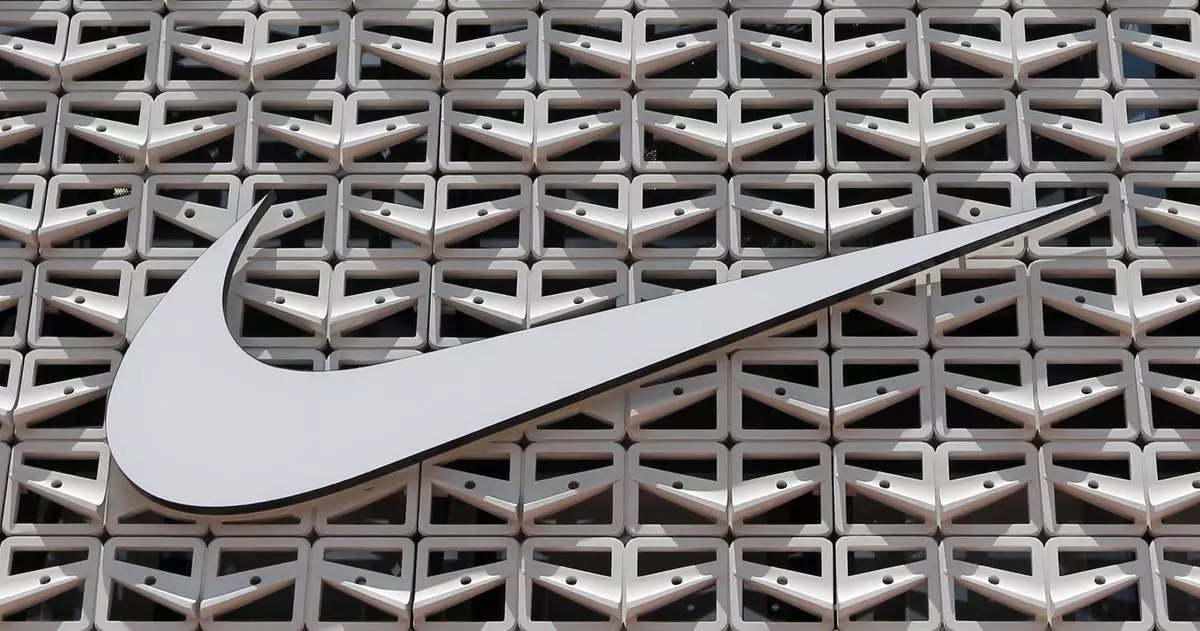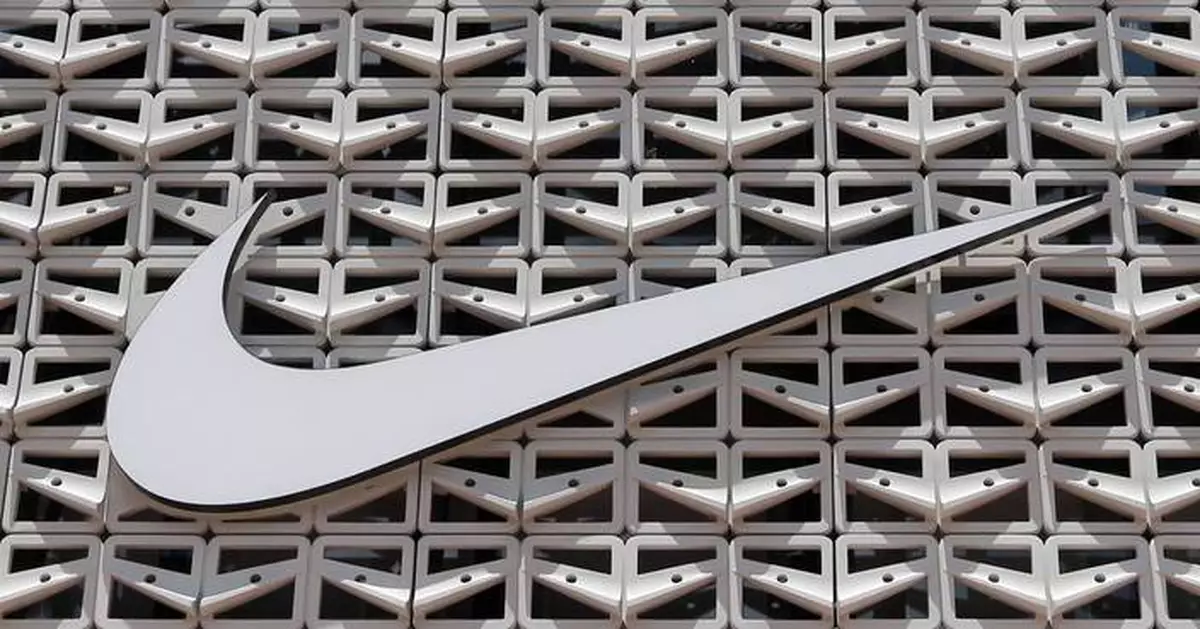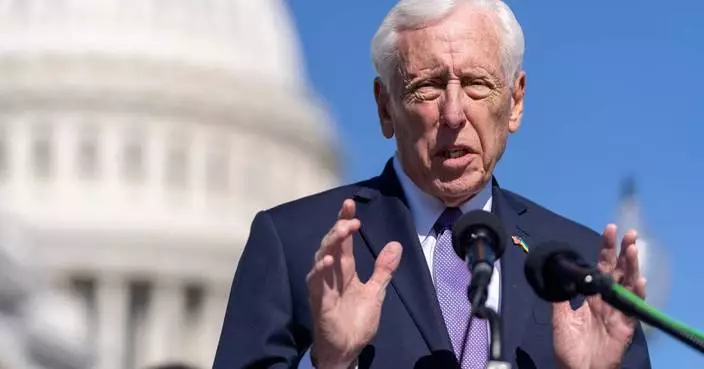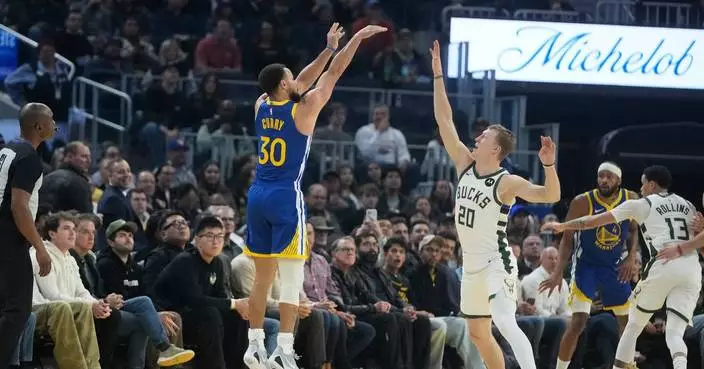BEAVERTON, Ore. (AP) — Nike Inc. said Thursday it has named Elliott Hill as its president and CEO, replacing John Donahoe, who will retire next month.
Hill is returning to the company from which retired in 2020. He previously held leadership positions at the sportswear giant across Europe and North America. Before his retirement, he served as the president of consumer and marketplace operations for Nike and the Jordan brand.
Nike's sales have weakened recently and its stock is down about 24% year-to-date. In its most recent quarter, which ended on May 31, the company reported a 2% revenue decline. Donahoe said at the time that the company is approaching its “near-term challenges head-on, while making continued progress in the areas that matter most to Nike's future.”
In February, the company based in Beaverton, Oregon, announced it was cutting 2% of its global workforce, or little over 1,600 jobs, aiming to cut costs and reinvest the savings into what it sees as big growth areas like sport, health and wellness.
Nike's stock jumped almost 8% following the announcement, which came after the close of regular-session trading on Wall Street.

File - The Nike logo is shown on a store in Miami Beach, Fla. on Aug. 8, 2017. (AP Photo/Alan Diaz, File)
SALT LAKE CITY (AP) — A shooting outside a church building in Salt Lake City killed two people and injured six others Wednesday, police said.
The shooting took place in the parking lot of a meetinghouse of The Church of Jesus Christ of Latter-day Saints, widely known as the Mormon church.
Dozens of people were attending a funeral inside at the time. All the victims were adults.
Police said they do not believe the shooter had any animus toward a particular faith.
“We don’t believe this was a targeted attack against a religion or anything like that,” Salt Lake City Police Chief Brian Redd said.
Police also do not believe the shooting was random. Authorities said no suspect was in custody.
About 100 law enforcement vehicles were at the scene in the aftermath, and helicopters flew overhead.
“This should never have happened outside a place of worship. This should never have happened outside a celebration of life,” Mayor Erin Mendenhall said.
The church was cooperating with law enforcement and was grateful for efforts first responders' efforts, a spokesperson said.
“We extend prayers for all who have been impacted by this tragedy and express deep concern that any sacred space intended for worship should be subjected to violence of any kind,” Sam Penrod said in a statement.
The church is headquartered in Salt Lake City, and about half of Utah’s 3.5 million residents are members of the faith. Churches like the one where the shooting occurred can be found in towns throughout the city and state.
The faith has been on heightened alert since four people were killed when a former Marine opened fire in a Michigan church last month and set it ablaze. The FBI found that he was motivated by “anti-religious beliefs” against the church.

Police respond to a fatal shooting in a parking lot of The Church of Jesus Christ of Latter-day Saints in Salt Lake City on Wednesday, Jan. 7, 2025. (AP Photo/Hannah Schoenbaum)

Police respond to a fatal shooting in a parking lot of The Church of Jesus Christ of Latter-day Saints in Salt Lake City on Wednesday, Jan. 7, 2025. (AP Photo/Hannah Schoenbaum)

Police respond to a fatal shooting in a parking lot of The Church of Jesus Christ of Latter-day Saints in Salt Lake City on Wednesday, Jan. 7, 2025. (Laura Seitz/The Deseret News via AP)

People hug each other after a fatal shooting in a parking lot of The Church of Jesus Christ of Latter-day Saints in Salt Lake City on Wednesday, Jan. 7, 2025. (Laura Seitz/The Deseret News via AP)

Funeral attendees leave a meetinghouse of The Church of Jesus Christ of Latter-day Saints after a fatal shooting in the parking lot in Salt Lake City on Wednesday, Jan. 7, 2025. (Laura Seitz/The Deseret News via AP)

Police respond to a fatal shooting in a parking lot of The Church of Jesus Christ of Latter-day Saints in Salt Lake City on Wednesday, Jan. 7, 2025. (Rio Giancarlo/The Deseret News via AP)
















